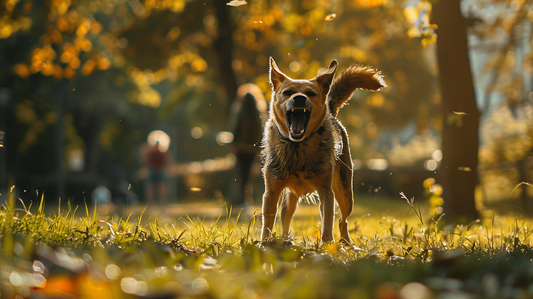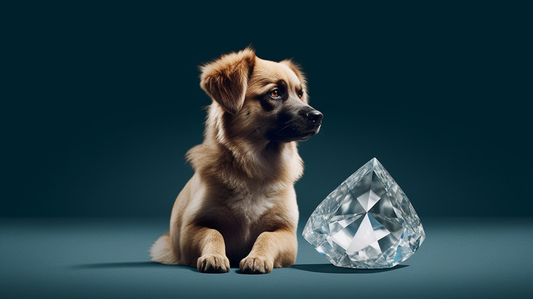
What are the Top 10 Longest-Living Dog Breeds?
List of the Top 10 Longest-Living Dog Breeds
As a dog owner, one of your primary concerns is how long your furry friend will live. A dog's lifespan is influenced by various factors such as genetics, breed, and physical characteristics. Smaller dogs tend to live longer than larger ones, and certain breeds are more prone to health issues that can reduce their lifespan. In this article, we will provide you with a list of the top 10 longest-living dog breeds based on their physical characteristics, breed, and genetics.
1. Toy & Miniature Poodles - Life expectancy: 13-15 years
Poodles are among the most popular dog breeds due to their intelligence, hypoallergenic coat, and friendly disposition. Toy and miniature Poodles have an average lifespan of 13 to 15 years, making them one of the longest-living dog breeds. Poodles are generally healthy dogs, but they can be prone to certain health conditions such as hip dysplasia, ear infections, and cataracts.
2. West Highland White Terrier - Life expectancy: 12-15 years
The West Highland White Terrier, or Westie, is a small but sturdy breed known for its lively personality and independent spirit. With a lifespan of 12 to 15 years, Westies are one of the longest-living dog breeds. They are generally healthy, but can be prone to skin allergies, luxating patellas, and liver disease.
3. Yorkshire Terrier - Life expectancy: 13-15 years
Yorkshire Terriers, or Yorkies, are small and energetic dogs that make great companions. They have a lifespan of 13 to 15 years, making them one of the longest-living dog breeds. Yorkies are generally healthy, but can be prone to dental issues, collapsed trachea, and liver shunts.
4. Lakeland Terrier - Life expectancy: 14-18 years
Lakeland Terriers are small and agile dogs that were originally bred for hunting. With a lifespan of 14 to 18 years, they are one of the longest-living dog breeds. Lakeland Terriers are generally healthy, but can be prone to certain health conditions such as allergies, liver disease, and cataracts.
5. Chihuahua - Life expectancy: 13-18 years
The Chihuahua is the smallest dog breed in the world, but they have a big personality. With a lifespan of 13 to 18 years, Chihuahuas are one of the longest-living dog breeds. They are generally healthy, but can be prone to dental issues, patellar luxation, and heart murmurs.
6. Swedish Vallhund - Life expectancy: 14-18 years
The Swedish Vallhund is a small herding breed known for its friendly personality and energetic nature. With a lifespan of 14 to 18 years, they are one of the longest-living dog breeds. Swedish Vallhunds are generally healthy, but can be prone to hip dysplasia and progressive retinal atrophy.
7. Bearded Collie - Life expectancy: 13-15 years
The Bearded Collie is a medium-sized herding dog known for its shaggy coat and playful nature. With a lifespan of 13 to 15 years, they are one of the longest-living dog breeds. Bearded Collies are generally healthy, but can be prone to hip dysplasia and hypothyroidism.
8. Border Terrier - Life expectancy: 14-15 years
Border Terriers are small and energetic dogs that were originally bred for hunting. With a lifespan of 14 to 15 years, they are one of the longest-living dog breeds. Border Terriers are generally healthy, but can be prone to certain health conditions such as hip dysplasia and allergies.
9. Tibetan Spaniel - Life expectancy: 13-15 years
The Tibetan Spaniel is a small and alert breed that was originally bred in Tibet as a watchdog. With a lifespan of 13 to 15 years, they are one of the longest-living dog breeds. Tibetan Spaniels are generally healthy, but can be prone to certain health conditions such as patellar luxation and dental issues.
10. Jack Russell Terrier - Life expectancy: 13-15 years
The Jack Russell Terrier is a small and energetic breed that was originally bred for hunting. With a lifespan of 13 to 15 years, they are one of the longest-living dog breeds. Jack Russell Terriers are generally healthy, but can be prone to certain health conditions such as deafness and allergies.
Mixed breeds and crossbreeds often have longer lifespans than purebred dogs, due to their genetic diversity. This is known as "hybrid vigor" or "heterosis". Mixed breed dogs are less likely to suffer from certain genetic diseases and health conditions that are common in purebred dogs.
To help your dog live a longer and healthier life, it is important to take good care of their health. Regular exercise, a healthy diet, and routine veterinary care are all important factors that can help extend your dog's lifespan. It is also important to keep your dog at a normal weight, as obesity can lead to a number of health problems in dogs, including heart disease, diabetes, and joint problems.
In addition to routine veterinary care, it is also important to practice preventative care at home. This includes regular teeth cleaning to prevent dental disease, and keeping your dog up to date on their vaccinations to protect against infectious diseases.
In conclusion, the lifespan of a dog is influenced by a number of factors, including genetics, breed, and physical characteristics. The top 10 longest-living dog breeds are Toy & Miniature Poodles, West Highland White Terriers, Yorkshire Terriers, Lakeland Terriers, Chihuahuas, Swedish Vallhunds, Bearded Collies, Border Terriers, Tibetan Spaniels, and Jack Russell Terriers. By taking good care of your dog's health and providing them with regular exercise and preventative care, you can help extend their lifespan and ensure that they live a long and healthy life.
FAQs
- Are mixed breed dogs healthier than purebred dogs?
- Mixed breed dogs are often healthier than purebred dogs, as they have greater genetic diversity that reduces the risk of certain genetic diseases and health conditions.
- How can I help my dog live a longer life?
- You can help your dog live a longer life by providing them with regular exercise, a healthy diet, routine veterinary care, and practicing preventative care such as regular teeth cleaning and vaccinations.
- Why do smaller dogs tend to live longer than larger ones?
- Smaller dogs tend to live longer than larger ones due to a slower metabolic rate and less stress on their organs.
- What health conditions are common in certain dog breeds?
- Certain dog breeds are prone to specific health conditions, such as hip dysplasia in larger breeds, and dental issues in smaller breeds.
- What is "hybrid vigor" or "heterosis"?
- Hybrid vigor or heterosis refers to the increased fitness and health of offspring produced from two genetically different parents. This can result in longer lifespans and improved overall health in mixed breed dogs.






